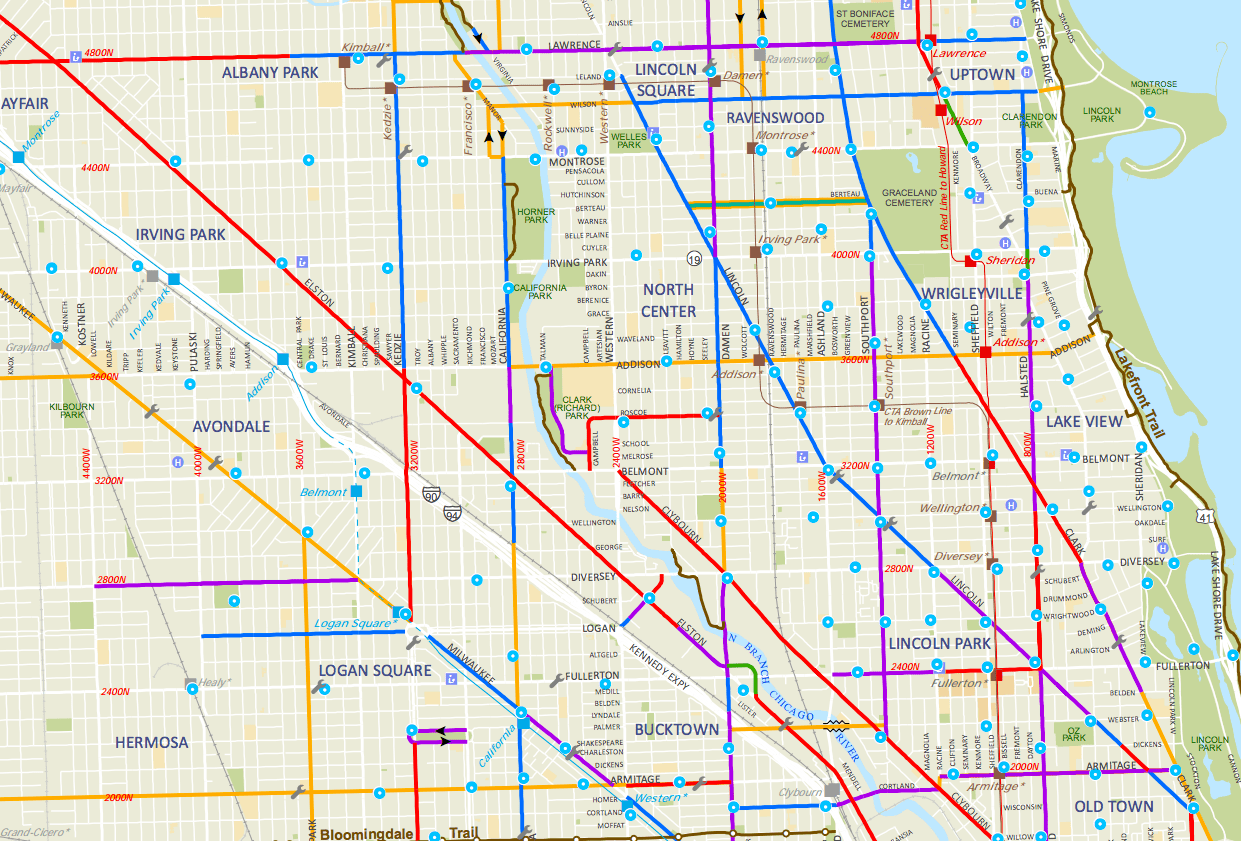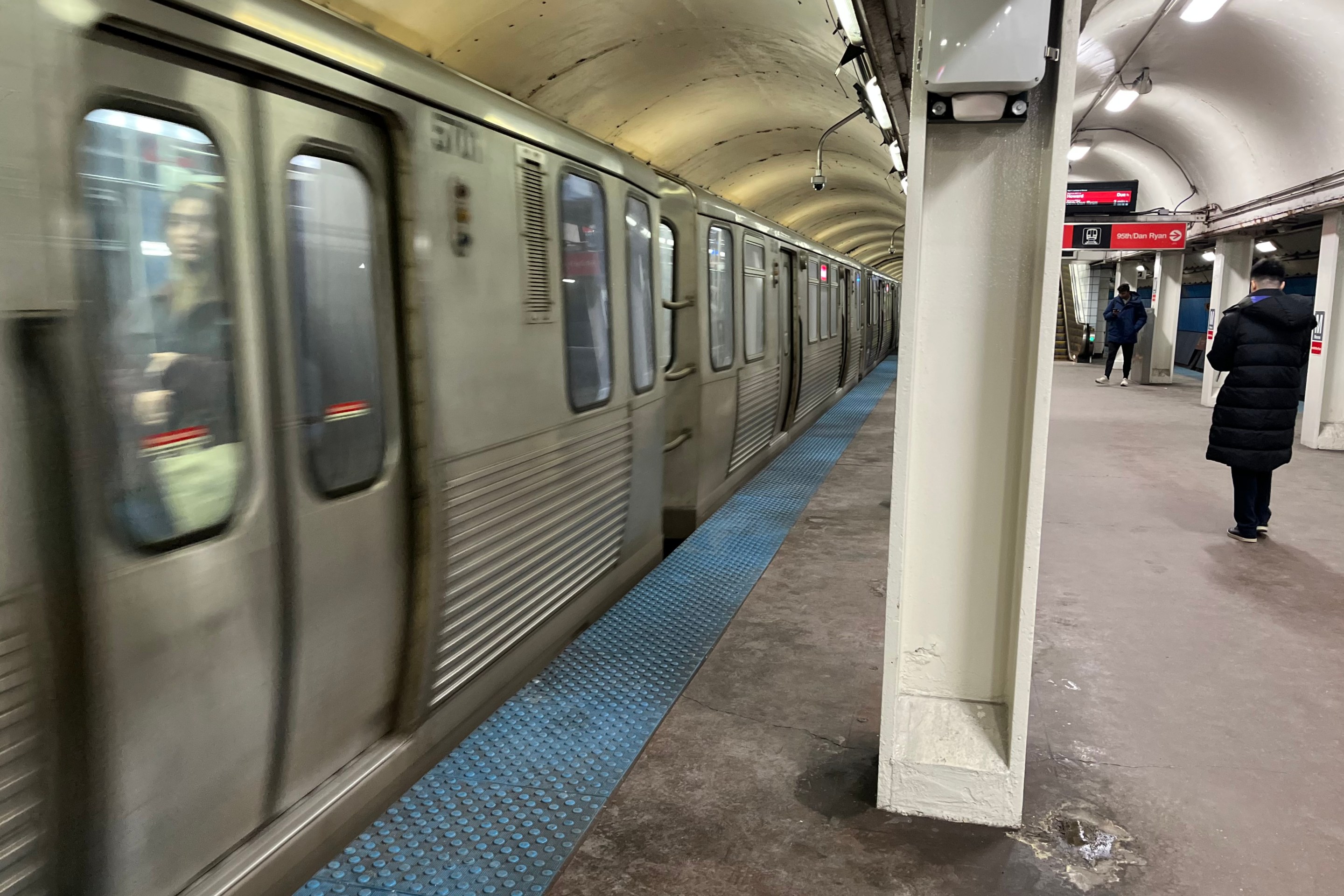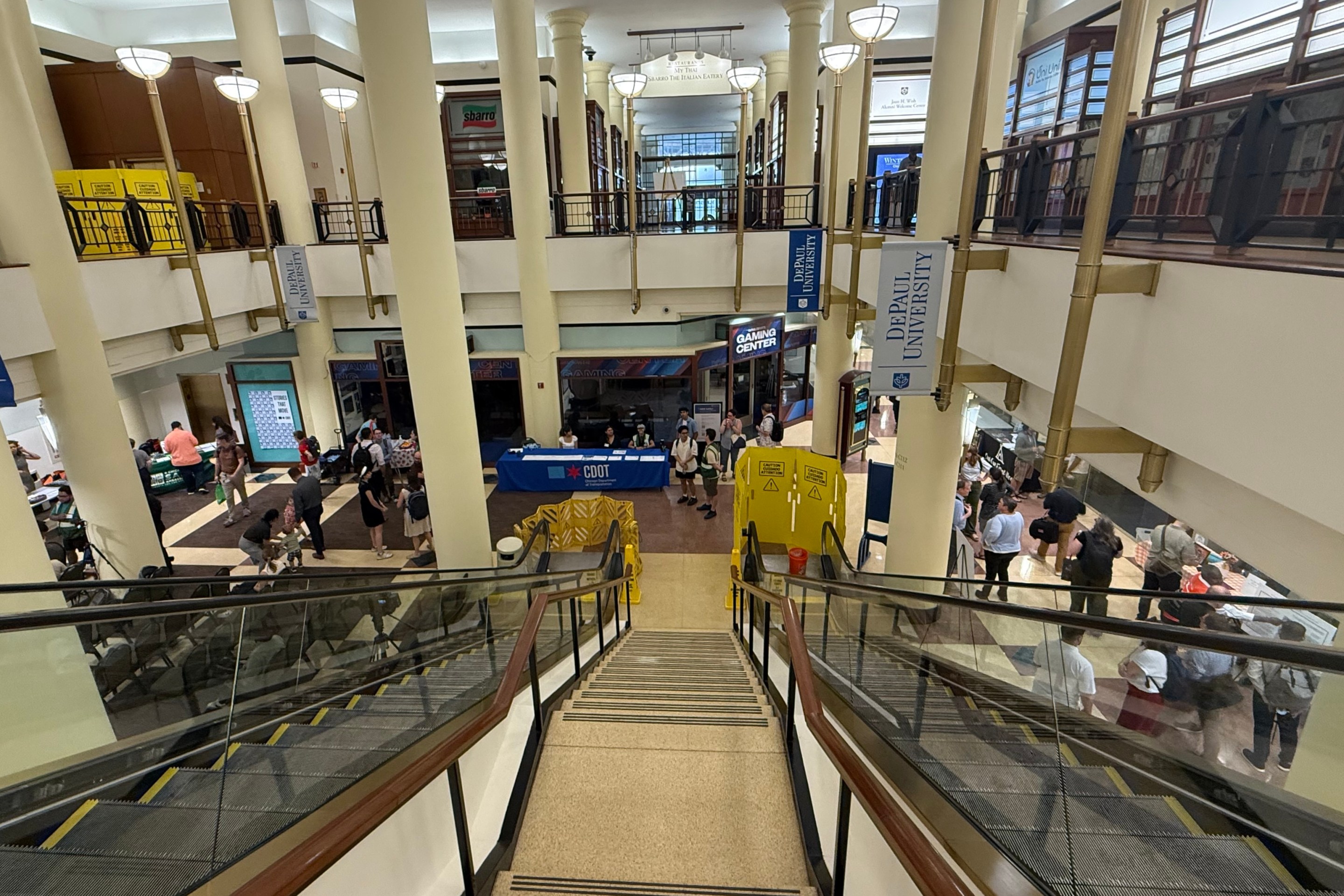Last Wednesday Mayor Rahm Emanuel broke ground on what the city is calling the 312 RiverRun trail, improvements to the nearly two-mile stretch of riverfront between Belmont and Montrose that will link up three different parks. The project includes the Riverview Bridge, which will connect Clark Park on the east side of the waterway and California Park on the west bank. The span, which will be 16 feet wide and more than a thousand feet long, will pass under the Addison Street bridge and ascend more than 18 feet above the water. The ceremony marked the start of construction on the Riverview Bridge, which is slated for completion by late 2018.
A second key element of the 312 RiverRun project is the Irving Park Road Bridge and Multi-Use Path. As part of the replacement of the 95-year-old street bridge (which, unfortunately, includes widening the four-lane bridge to create more capacity for cars), the city is building an underbridge for pedestrians and cyclists. This path will California Park to Horner Park, located at the northeast corner of Irving Park and California Avenue. This bridge-and-path project is scheduled to start next year and wrap up by late 2019.
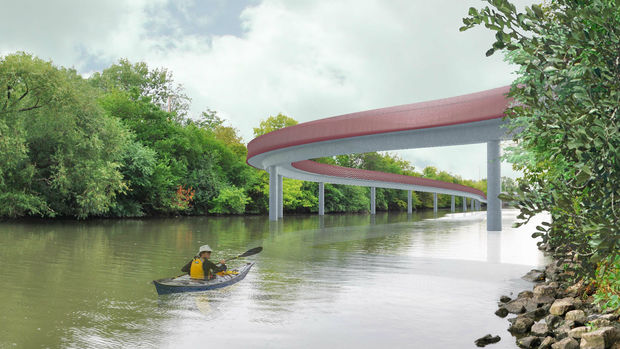
While cyclists I’ve spoken with are happy about getting new options for riverside riding, several people noted that it’s ironic that the city is creating a new north-south bike route when there are relatively few good east-west bikeways in Chicago, including in the 312RiverRun project area. “I’d love to see an explanation addressing the fact that the trail will stretch two miles over the river, but none of the cross streets (Belmont, Addison, Irving, Montrose) have any bike infrastructure whatsoever,” wrote one Streetsblog reader.
Granted, the Irving Park underbridge will greatly improve that crossing for cyclists, but it’s true that there are currently no east-west bike lanes over the river between Cortland/Armitage and Lawrence. In fact, aside from the mile of Fullerton between Ashland and Halsted, and some stretches of Diversey west of Milwaukee, there are virtually no east-west bike lanes at all in this entire 3.5-mile-wide swath of the city.
There are a number of factors in why this is the case, including the positions of the river, expressways, railroads, and other barriers. There’s also the fact that some east-west arterials in Chicago are controlled by the Illinois Department of Transportation, which has historically been loathe to reallocate space from cars to bikes.
But one likely factor in the dearth of bike lanes on east-west Chicago streets is especially troubling. It appears that the Chicago Transit Authority, which should be in favor of intiatives to help get private cars off the roads, has previously opposed the construction of bike lanes on bus route streets, such as Belmont, Addison, Irving Park, and Montrose, on the grounds they slow down buses.
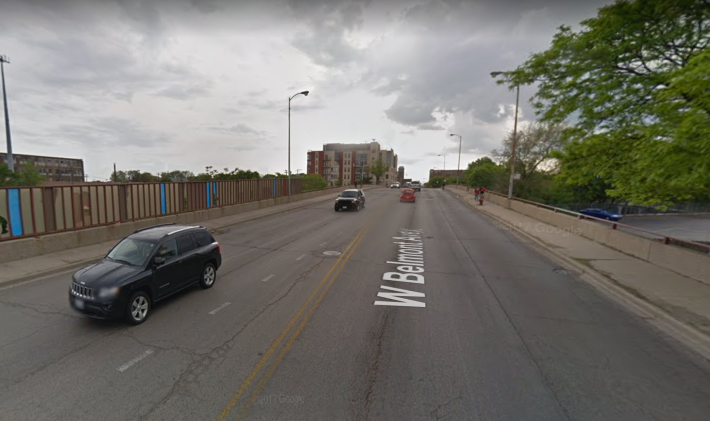
For example, as of early 2015, Belmont was slated to get a road diet with buffered lanes west of Western all the way to Kedzie, but that project was later shelved. Minutes from a September 28 meeting of the 33rd Ward’s Transportation Action Committee, recently released by Alderman Deb Mell’s office, make it clear what the problem is. “Our office has been working with [the Chicago Department of Transportation] to get designated bike lanes on Belmont; such efforts are at a standstill due to CTA and their desire to keep their bus route free of designated bike lanes.”
The minutes note that Mell’s staff spoke with CDOT about the possibity of striping “dashed bike lanes,” similar to what was recently piloted on Milwaukee Avenue in Wicker Park, on Belmont as a compromise. “CDOT prefers to do designated lanes as there is adequate space for them,” the minutes note. “At end of day, it is CTA that is preventing this… Neither dedicated lanes nor dashed lines (as seen on Milwaukee) are seen by CTA as desirable. This project is indefinitely on hold.”
In a statement from CTA to Streetsblog Chicago in March, spokesperson Jeffrey Tolman said, "Specifically, the configuration (narrowness) of the street at some points makes adding buffered bike lanes while still providing sufficient room for safe and efficient bus operations difficult. The #77 Belmont route is one of our busiest bus routes that serves more than 20,000 riders each weekday. We’re still in communications with CDOT to identify a solution."
In the near future I plan to check in with the CTA, CDOT, and local bike advocacy leaders on the issue of the transit agency blocking the construction of bike lanes. But it’s clear that Alderman Mell puts the blame for the killing of the Belmont bike lane plan squarely on the transit agency’s shoulders. The announcement of the 312 RiverRun, which would have linked up with Belmont, makes that kiboshed east-west bikeway that much more of a missed opportunity.
H/T to Twitter user @oliveb123 for sharing the 33rd Ward TAC meeting minutes.
